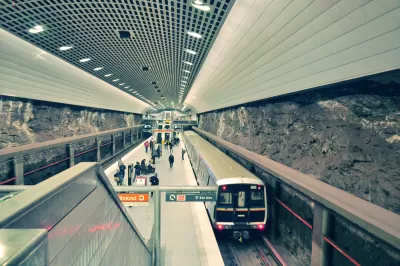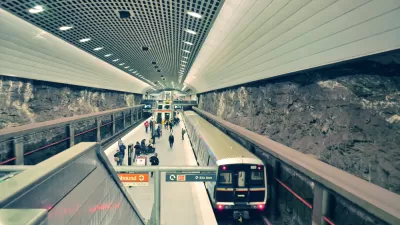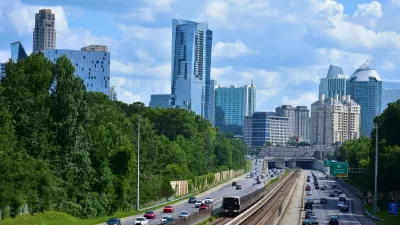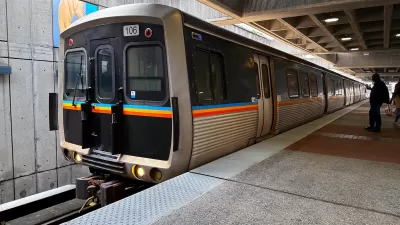The city has tasked the Metropolitan Atlanta Rapid Transit Authority with evaluating the feasibility of eliminating transit fares.

Atlanta could join the ranks of cities experimenting with fare-free transit, pending the results of a study commissioned by the city council in June, reports J.D. Capelouto in the Atlanta Journal-Constitution. “The study will only focus on the impact of fare-free MARTA within Atlanta city limits, but [Councilman Michael Julian Bond] hopes neighboring cities and counties that have MARTA service could eventually contribute to an expanded fare-free program.”
The ordinance passed by the city council requests information on:
- The cost of providing fare-free transit in the city
- The funding streams available to the city and MARTA
- A timeline for implementation
- A cost analysis of other cities in the United States that offer fare-free transit
- Partnerships that the city can establish to bolster the effort
This wouldn’t be MARTA’s first foray into free fares. “When the pandemic first hit, the agency waived bus fares, asking passengers to board from the back door to reduce contact with drivers. While it didn’t reach pre-COVID levels, bus ridership increased throughout that period, and sharply decreased when the fares were reinstated, MARTA data shows.”
“Still, the idea could face a number of hurdles, primarily surrounding how MARTA or the city would make up for a millions in lost fare revenue” and maintain or improve service frequency, which many riders say matters more than cost.
FULL STORY: MARTA hopes to answer: Could transit be free in Atlanta?

Manufactured Crisis: Losing the Nation’s Largest Source of Unsubsidized Affordable Housing
Manufactured housing communities have long been an affordable housing option for millions of people living in the U.S., but that affordability is disappearing rapidly. How did we get here?

Americans May Be Stuck — But Why?
Americans are moving a lot less than they once did, and that is a problem. While Yoni Applebaum, in his highly-publicized article Stuck, gets the reasons badly wrong, it's still important to ask: why are we moving so much less than before?

Research Shows More Roads = More Driving
A national study shows, once again, that increasing road supply induces additional vehicle travel, particularly over the long run.

Judge Halts Enforcement of Anti-Homeless Laws in Grants Pass
The Oregon city will be barred from enforcing two ordinances that prosecute unhoused residents until it increases capacity and accessibility at designated camping sites.

Advancing Sustainability in Los Angeles County Schools
The Los Angeles County Office of Education’s Green Schools Symposium brings together educators, students, and experts to advance sustainability in schools through innovative design, climate resilience strategies, and collaborative learning.

Using Old Oil and Gas Wells for Green Energy Storage
Penn State researchers have found that repurposing abandoned oil and gas wells for geothermal-assisted compressed-air energy storage can boost efficiency, reduce environmental risks, and support clean energy and job transitions.
Urban Design for Planners 1: Software Tools
This six-course series explores essential urban design concepts using open source software and equips planners with the tools they need to participate fully in the urban design process.
Planning for Universal Design
Learn the tools for implementing Universal Design in planning regulations.
City of Moreno Valley
Institute for Housing and Urban Development Studies (IHS)
City of Grandview
Harvard GSD Executive Education
NYU Wagner Graduate School of Public Service
City of Cambridge, Maryland
Newport County Development Council: Connect Greater Newport





























